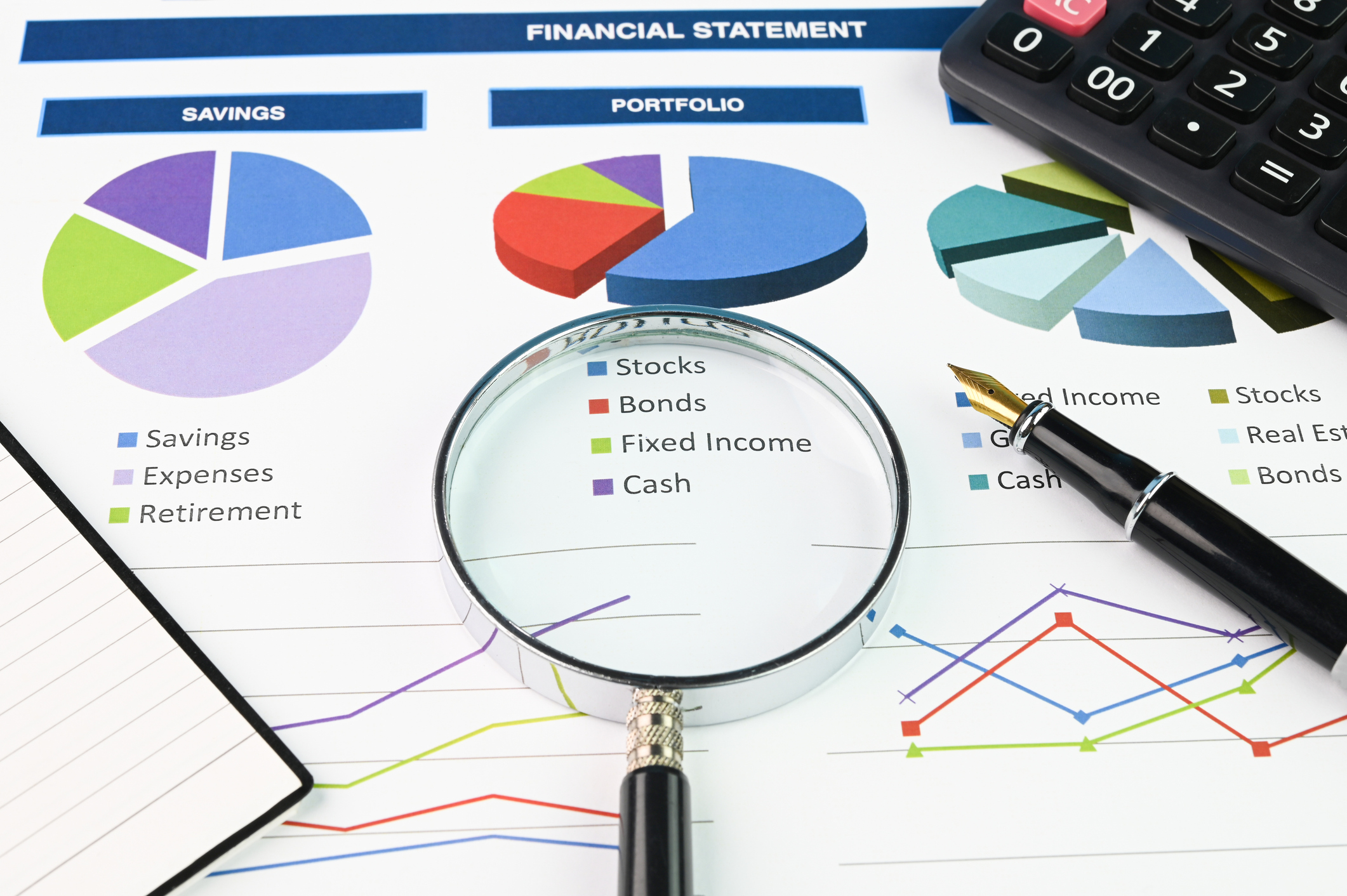Sponsored by Physicians Mutual
9 Things You Need for a Complete Retirement
A successful retirement is built on a solid foundation of careful planning and self-awareness. Here are nine key areas to plan for if you want to retire with confidence.

Retiring with confidence isn't just about having enough money; it's a comprehensive process that tackles your financial, emotional, and social well-being. Ultimately, a successful retirement is built on a solid foundation of careful planning and self-awareness.
Retirement has evolved significantly. Funding has changed drastically from employer-provided pensions to self-funding. While only 24% of Peak Boomers have defined benefit pensions, Gen Xers face an even greater challenge, with only 14% participating in such plans as of 2020, according to a study by the National Institute for Retirement Security.
The challenge with relying primarily on defined contribution plans, such as a 401(k), is that retirement income largely depends on individual contributions and investment gains from IRAs, brokerage accounts, and bonds.
From just $107.88 $24.99 for Kiplinger Personal Finance
Become a smarter, better informed investor. Subscribe from just $107.88 $24.99, plus get up to 4 Special Issues

Sign up for Kiplinger’s Free Newsletters
Profit and prosper with the best of expert advice on investing, taxes, retirement, personal finance and more - straight to your e-mail.
Profit and prosper with the best of expert advice - straight to your e-mail.
Financial planning for retirement
Financial security is the cornerstone of a confident retirement, requiring a multi-faceted approach to managing assets, income and expenses. But most Americans aren't saving enough for their golden years.
More than half of American households (54%) lack dedicated retirement savings, according to the Federal Reserve's Survey of Consumer Finances (SCF). On the bright side, the total 401(k) savings rate increased slightly to a record 14.3% in Q1 2025.
Regardless of your current savings, it's always a good time to create or reevaluate an existing retirement plan.
1. Determine your retirement "number"

The first step in planning for retirement is determining your "magic number" — the total amount you'll need to fund your desired lifestyle. Since retirement often means being active rather than slowing down, it's crucial to create a detailed budget that covers both essential expenses (like housing, health care, and food) and lifestyle costs (such as travel, hobbies, and social activities).
So, how much do you need to save for retirement? If you're looking for a benchmark, Northwestern Mutual's Planning and Progress Study found that the average American thinks that they need $1.26 million to retire comfortably. Alternatively, Fidelity recommends saving at least 10 times your salary by age 67.
You could also turn to some tried and tested retirement rules. The '80% Rule of Retirement' says you should aim to have enough savings to replace 80% of your pre-retirement income. The 'Rule of $1,000' states that for every $1,000 in monthly income you want, you’ll need $240,000. Finally, the 'Rule of 25' suggests you should save 25 times your anticipated annual expenses to fund a comfortable retirement.
2. A plan for savings and investment

Once you have a target number, you need a plan to get there. Take advantage of tax-advantaged accounts like 401(k)s, 403(b)s, and IRAs, and contribute as much as possible, especially if your employer offers a matching program.
It's never a good idea to concentrate too much of your money in one type of investment or in too few accounts. Diversify your investments to manage risk and provide for future growth. Bonds, CDs, and high-yield savings accounts can provide a safe place to park your money and minimize risk.
As you approach retirement, you'll need to start visualizing how you'll spend the money you've accumulated. You'll need to switch from savings and investing strategies to a retirement income plan. From preparing for sequence of returns risk to understanding your tax liabilities, an income strategy can stretch and protect your nest egg.
3. A plan for health care costs

Health care is often one of the largest and most unpredictable costs for retirees. Before you qualify for Medicare, you must plan for health insurance coverage. Once you're on Medicare, you'll need to budget carefully for premiums, co-pays, and potential long-term care expenses.
The earlier you retire before Medicare eligibility, the more your health care costs will increase. In the same vein, the longer you wait to retire after age 65, the more your costs decrease, according to the Milliman Retiree Health Cost Index.
How much will it all cost? According to Fidelity Investments’ 2025 Retiree Health Care Cost Estimate, the cost is about $174,500. That’s how much an individual aged 65, with Medicare, will spend in his or her lifetime on out-of-pocket health care expenses.
4. A Social Security strategy

The age at which you claim Social Security benefits can have a significant impact on your monthly income. While you can start as early as age 62, waiting until your full retirement age (FRA), or even later (up to age 70), can result in a much higher monthly benefit.
The biggest mistake most people make isn’t necessarily filing too early or too late; it’s deciding to file without regard to many other factors that the decision will impact, such as spousal benefits.
To determine the best time to claim your Social Security benefits, the '8-Year Rule of Social Security' is a great starting point. The rule is key to understanding how your claiming age fundamentally affects your total retirement income. Making the best decision requires carefully weighing the trade-offs, planning your cash flow, and considering crucial factors such as your health, tax situation, and the impact on your spouse’s benefits.
Seeking professional planning assistance is another way to go. A registered Social Security analyst (RSSA) can help you figure out what retirement benefits you are in line to receive, how to raise that monthly amount (including through delaying claiming your benefits), project how much of your benefits will be taxable, and give you a comprehensive picture of all the benefits Social Security provides, including disability and survivors' benefits.
5. A plan to manage debt

Before you retire, have a plan in place to pay down or eliminate high-interest debt; that will free up more of your retirement income for your lifestyle and goals.
Debt that is high cost, isn’t tax-deductible, and is taken on to buy an asset that will likely depreciate, like a car, is 'bad' debt. If you have credit card debt, that’s your priority.
Not all debt is bad. Debt that creates opportunities can actually work in your favor. For instance, a mortgage or home equity line of credit is generally 'good' debt. In this case, you’re borrowing to own a potentially appreciating asset. This type of debt also has tax advantages.
What should you do? You should prioritize paying down any bad debt while keeping the good debt working for you.
6. Plan for the emotional and social aspects of retirement
While financial preparation is essential, a truly satisfying retirement also requires you to prepare for the profound emotional and social changes that come with leaving the workforce. You need to think beyond the financial aspects of retirement.
The 'First Year of Retirement' rule says that the 12 months after you leave work set the tone for your entire later life. And while every year matters, experts say the first year may stand apart. It can trigger mistakes that snowball or set the stage for a fulfilling second act.
7. Preparations for lifestyle adjustments

Retirement often involves a period of transition. You may find yourself with more free time than you're used to, which can be exciting but also challenging. Planning what a typical day or week will look like and setting new goals can help you navigate this transition with confidence.
The retirement 'Rule of 1,000 Hours' crystallizes the importance of creating purpose in your life. Despite what you might think, free time in retirement isn’t unlimited. Retirees have, on average, roughly 1,000 hours a year of meaningful, discretionary time.
You need to create a plan for how you’ll spend your time in retirement, just as carefully as you planned for your finances, because how you spend your time can be just as important as how you spend your money.
8. A plan to stay engaged and socially connected

Your work life often provides a built-in social network. After retirement, it's vital to actively maintain old relationships and seek out new connections. Joining clubs, taking classes, or volunteering can help combat feelings of isolation and keep your mind active.
A social support network is as vital to the quality of life in later years as any financial asset. “Taking care of your body is important, but tending to your relationships is a form of self-care too. That, I think, is the revelation,” Robert Waldinger, a psychiatrist and Director of the Harvard Study on Adult Development, told the Harvard Gazette. In a TED Talk, he shared that "the people who were the most satisfied in their relationships at age 50 were the healthiest at age 80.”
9. A plan to embrace a healthy lifestyle

Maintaining your physical and mental health is critical for enjoying a long and active retirement. Eating well, exercising regularly, and scheduling regular medical check-ups will help ensure you have the energy to pursue your newfound freedom.
A wide range of activities can improve your health. Consider weight lifting: beyond building muscle, it actively helps to prevent bone loss, improve balance and coordination, and combat cognitive decline.
Another surprising benefit comes from oral health: keeping gum disease in check can lower your risk of strokes and heart attacks. Treating periodontitis slows the thickening of the carotid arteries in the neck, which is a major contributor to cardiovascular disease and stroke risk.
Adopting a dog or cat is not only a source of companionship and affection, but it can also help fight cognitive decline and boost your social life.
It's never too late
There's no doubt that time is your greatest ally when planning for retirement — thanks to compound interest. A longer time horizon gives retirement accounts and investments more time to bounce back and recover after a recession or downturn in the stock market.
Don't feel defeated if you haven't been able to save and invest as consistently as the experts recommend; it’s never too late to save for retirement. Anything you invest today has the opportunity to grow for tomorrow. Take advantage of catch-up and super catch-up contributions and create a plan to pay down any high-interest debt you may be carrying. You want to go into the home stretch earning interest — not paying it.
Related Content
Profit and prosper with the best of Kiplinger's advice on investing, taxes, retirement, personal finance and much more. Delivered daily. Enter your email in the box and click Sign Me Up.

Donna joined Kiplinger as a personal finance writer in 2023. She spent more than a decade as the contributing editor of J.K.Lasser's Your Income Tax Guide and edited state specific legal treatises at ALM Media. She has shared her expertise as a guest on Bloomberg, CNN, Fox, NPR, CNBC and many other media outlets around the nation. She is a graduate of Brooklyn Law School and the University at Buffalo.
-
 Quiz: Do You Know How to Avoid the "Medigap Trap?"
Quiz: Do You Know How to Avoid the "Medigap Trap?"Quiz Test your basic knowledge of the "Medigap Trap" in our quick quiz.
-
 5 Top Tax-Efficient Mutual Funds for Smarter Investing
5 Top Tax-Efficient Mutual Funds for Smarter InvestingMutual funds are many things, but "tax-friendly" usually isn't one of them. These are the exceptions.
-
 AI Sparks Existential Crisis for Software Stocks
AI Sparks Existential Crisis for Software StocksThe Kiplinger Letter Fears that SaaS subscription software could be rendered obsolete by artificial intelligence make investors jittery.
-
 Quiz: Do You Know How to Avoid the 'Medigap Trap?'
Quiz: Do You Know How to Avoid the 'Medigap Trap?'Quiz Test your basic knowledge of the "Medigap Trap" in our quick quiz.
-
 We Retired at 62 With $6.1 Million. My Wife Wants to Make Large Donations, but I Want to Travel and Buy a Lake House.
We Retired at 62 With $6.1 Million. My Wife Wants to Make Large Donations, but I Want to Travel and Buy a Lake House.We are 62 and finally retired after decades of hard work. I see the lakehouse as an investment in our happiness.
-
 Social Security Break-Even Math Is Helpful, But Don't Let It Dictate When You'll File
Social Security Break-Even Math Is Helpful, But Don't Let It Dictate When You'll FileYour Social Security break-even age tells you how long you'd need to live for delaying to pay off, but shouldn't be the sole basis for deciding when to claim.
-
 I'm a Wealth Adviser Obsessed With Mahjong: Here Are 8 Ways It Can Teach Us How to Manage Our Money
I'm a Wealth Adviser Obsessed With Mahjong: Here Are 8 Ways It Can Teach Us How to Manage Our MoneyThis increasingly popular Chinese game can teach us not only how to help manage our money but also how important it is to connect with other people.
-
 Global Uncertainty Has Investors Running Scared: This Is How Advisers Can Reassure Them
Global Uncertainty Has Investors Running Scared: This Is How Advisers Can Reassure ThemHow can advisers reassure clients nervous about their plans in an increasingly complex and rapidly changing world? This conversational framework provides the key.
-
 5 Ronald Reagan Quotes Retirees Should Live By
5 Ronald Reagan Quotes Retirees Should Live ByThe Nation's 40th President's wit and wisdom can help retirees navigate their financial and personal journey with confidence.
-
 We're 78 and Want to Use Our 2026 RMD to Treat Our Kids and Grandkids to a Vacation. How Should We Approach This?
We're 78 and Want to Use Our 2026 RMD to Treat Our Kids and Grandkids to a Vacation. How Should We Approach This?An extended family vacation can be a fun and bonding experience if planned well. Here are tips from travel experts.
-
 Should You Jump on the Roth Conversion Bandwagon? A Financial Adviser Weighs In
Should You Jump on the Roth Conversion Bandwagon? A Financial Adviser Weighs InRoth conversions are all the rage, but what works well for one household can cause financial strain for another. This is what you should consider before moving ahead.
